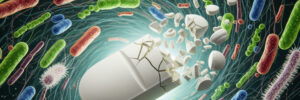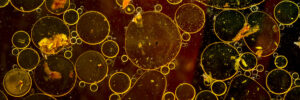
Decoding the influence of gut microbiota on drug efficacy with SIRIUS
In pharmacology, one of the most significant challenges is the variability in how patients respond to the same drug. While factors like genetics and lifestyle are known to play a role, emerging research points to a hidden player: the human gut microbiota. This vast community of trillions of microbes is an active participant in our health, influencing everything from nutrient absorption to the efficacy of our medications. Using advanced computational tools like SIRIUS to analyze mass spectrometry data, researchers investigated how gut microbiota alter the chemical structure of GPCR drugs.








